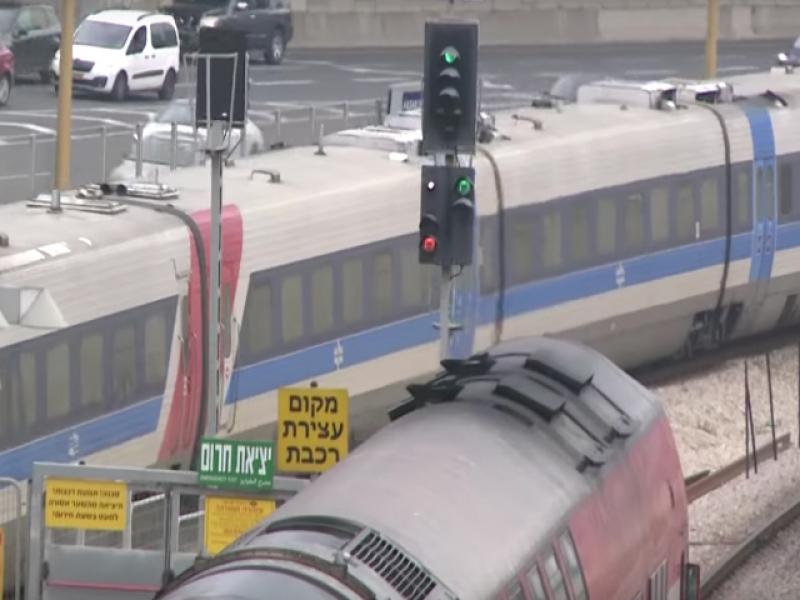
The State Comptroller published a harsh report on the state of public transportation, stating that the density of traffic on Israel's roads is 3.5 times higher than the average in the OECD countries. Over the years, the use of public transportation has remained small, and the use of private cars has increased. State Comptroller Yosef Shapira described the state of transport in a special and severe criticism report on the crisis and harshly criticized the conduct of the Ministry of Transportation.
"Israel's residents face every day in a difficult and burdensome transportation reality, which harms productivity, leads to the failure to absorb gross domestic product and tax revenues, and contributes to air pollution and noise pollution," Shapira notes in his report. New vehicles and 2017 new roads were added to the roads in 2017. "The increase in private vehicles in the period between 2017 and 2009 was 24.9%," Shapira stresses, and following the sharp increase in 2017, approximately 2.86 million private cars , Which constitute about 324.8 vehicles per thousand residents.
For two decades now, the government has been aware that an extensive public transport system is the best solution to metropolitan transportation problems and a necessary component of economic growth.
Despite the difficult data, investment in public transportation was very low, compared to most of the developed countries. Instead, emphasis was placed on the development of infrastructures that support the use of private vehicles. In the Tel Aviv metropolitan area, 50% of all workplaces are concentrated in the country. According to the Ministry of Transport, in 2016 six million daily trips were made in the metropolitan area, which is about half of all trips made in Israel in that year.
"The congestion on the roads is expected to grow in the next few years to the point of general failure of the arterial road network in the Tel Aviv-Jaffa metropolitan area during the peak hours of the morning," Shapira warns, "despite this, there is a large gap between the western world and Israel in terms of the length of the exclusive infrastructure for public transportation. Mainly buses, but bus services suffer from low efficiency, lack of capacity and low speed of travel.
Tests show that the average speed of public transportation in metropolitan areas in Israel is about 16 km / hour, compared to an average speed of 25 km / h in developed cities in the world, where transportation is varied and has an exclusive way.
Tests show that the average speed of public transportation in metropolitan areas in Israel is about 16 km / hour, compared to an average speed of 25 km / h in developed cities in the world, where transportation is varied and has an exclusive way.
The comptroller also warns that there is a low standard of service in public transportation. "The great and increasing dependence on private cars is mainly the result of inadequate public transport services," he claimed. "The overcrowding in a large part of the public transportation is unacceptably high." The report raises serious deficiencies in public transportation, including the low frequency of bus and train routes, long travel times in both buses and trains that are quickly defined but are actually operated as fugitives, as well as the lack of adequate integration between the various means of public transportation. "There is a low level of accessibility of stations to relatively large parts of the population," the report emphasizes.
The State Comptroller also warns against the lack of incentive to move from the use of private vehicles to public transportation. "The failure of the government and the professional teams to promote economic incentives to reduce the use of private cars prevented the possibility of reducing the use of private cars and reducing the burden on the roads. It was further argued that Transportation Minister Yisrael Katz did not advance the government's decisions, The State Comptroller believes that in practice, the Ministry of Transportation does not act as the main factor leading the advancement of the public transportation sector, inter alia due to failures in its functioning.
The Ministry of Transportation said in response that "the Ministry is in the midst of the largest infrastructure revolution ever undertaken in Israel, and in recent years the budget for public transport projects has increased significantly, and continues to grow every year - 60% to 70% NIS 17 billion, is invested in public transportation projects, "the Transportation Ministry said in response, adding that the ministry is currently promoting transportation projects totaling more than NIS 100 billion, designed to cope with traffic congestion in major metropolitan areas in general and the Dan Region in particular.
Articles Archive
Top Categories
ABOUT IFI TODAY

Lorem ipsum dolor sit amet, consectetur adipisicing elit, sed do eiusmod tempor incididunt ut labore et dolore magna aliqua. Ut enim ad minim veniam, quis nostrud exercitation ullamco laboris nisi ut aliquip ex ea commodo consequat. Duis aute irure dolor in reprehenderit in voluptate velit esse cillum


Comments